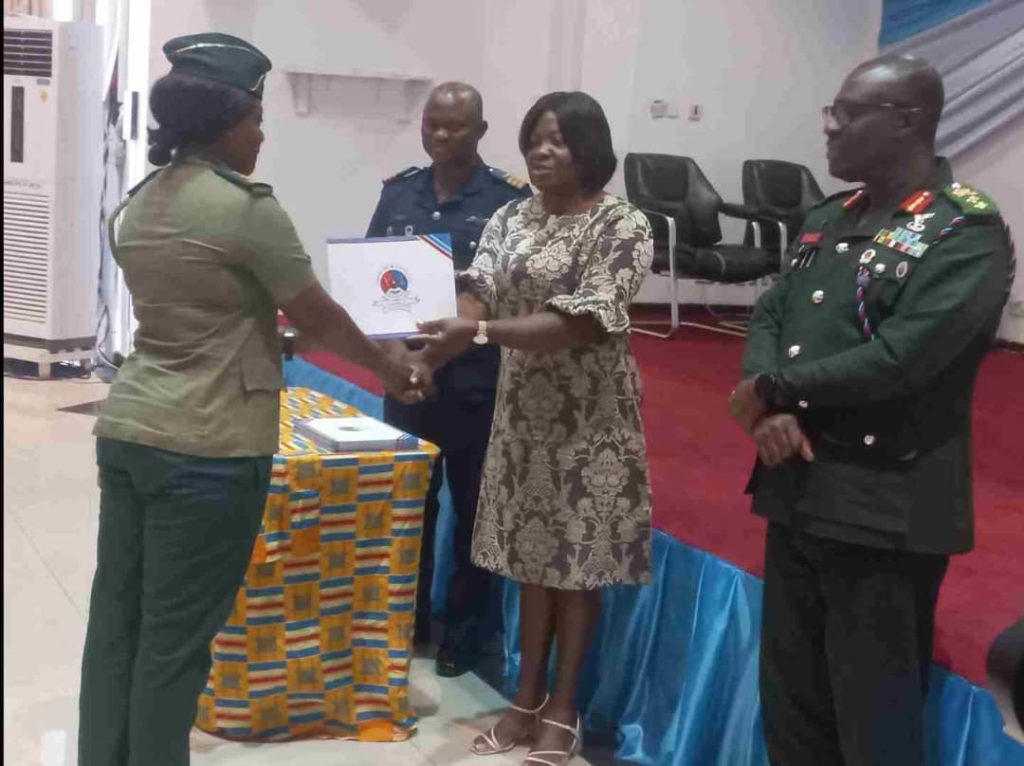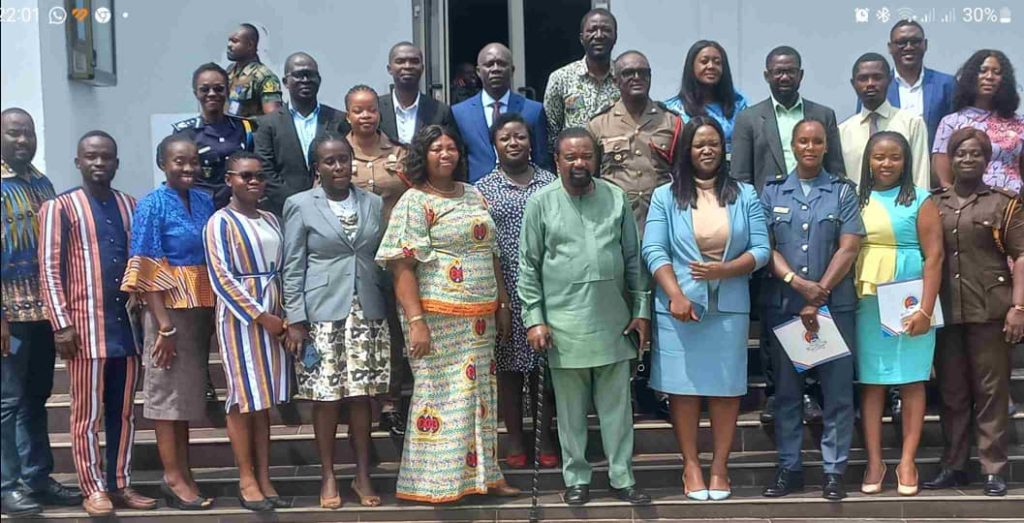By Christiana Afua Nyarko
Accra, July 08, GNA – Madam Ophelia Mensah Hayford, Member of Parliament (MP) for the Mfantseman Constituency, has urged local government assemblies to sponsor their officials to undertake defence and security management courses.
Such programmes would empower them to effectively deal with defence-related issues to enhance the security and stability of the nation, she said.
“The increasing sophistication and illusive nature of threats in today’s world puts defence and security in a more delicate process, thereby, making training in the management of defence and security a critical requirement for any nation,” she noted.
Madam Hayford was speaking at the closing ceremony of the 2023 edition of the Defence Management Course (DMC), organised by the Ghana Armed Forces Command and Staff College (GAFCSC), at Teshie, in the Greater Accra Region.

The programme introduced both uniformed and civilian personnel working in the security sector to the principles and techniques for governance and management.
The participants were also equipped with the relevant knowledge on dealing with defence and its related issues effectively at the national and regional security levels.
The Sub-Saharan Africa and the Sahel region have seen the threat of violent extremism growing over the last decade, resulting in substantial number of deaths and refugees.
The Africa Center for Strategic Studies reports that there was a 43 per cent spike in militant Islamist group violence in Africa in 2020.
The 4,958 reported events linked to these groups represents a record level of violence, continuing an upward trend seen since 2016.
Reported fatalities linked to African militant Islamist groups rose by a third in 2020 over the previous year, to an estimated 13,059 deaths.
Madam Mensah Hayford, a former senior police officer, said defence management had thus become a more multi-agency task, which required varied skills and capabilities.
No single agency could possibly develop all these capabilities required to manage it, she advised.
“The course objectives is relevant and key for Africa’s continued regional development, as they are also relevant to the development of each of the nations of GAFCSC’s allied students, and that of Africa as a whole,” she said.
She, therefore, challenged GAFCSC to seek innovative ways of further engagements with MDAs of Government, industry, and private sector to develop new programmes, products, best practices to help upgrade the skills of the Ghanaian workforce, in particular, and in the continent.
A total of 118 participants attended this year’s Defence Management Course.
Out of this, 85 were on the Senior Command and Staff Course 44, comprising 60 senior officers from the Ghana Armed Forces, and 25 from 11 other allied African countries.
The countries are Benin, Botswana, Ivory Coast, the Gambia, Liberia, Malawi, Namibia, Nigeria, South Africa, Tanzania and Togo.
Some representatives drawn from the Ministries, Departments and Agencies (MDAs) also participated in the course.

Present at the ceremony were the Commandant of the GAFCSC, Major-General Irvine Ayittey Aryeetey, and his Deputy, Brigadier-General Seidu Abass.
The Director, Academic Affairs, Dr Vladimir Antwi-Danso, also attended the programme.
GNA